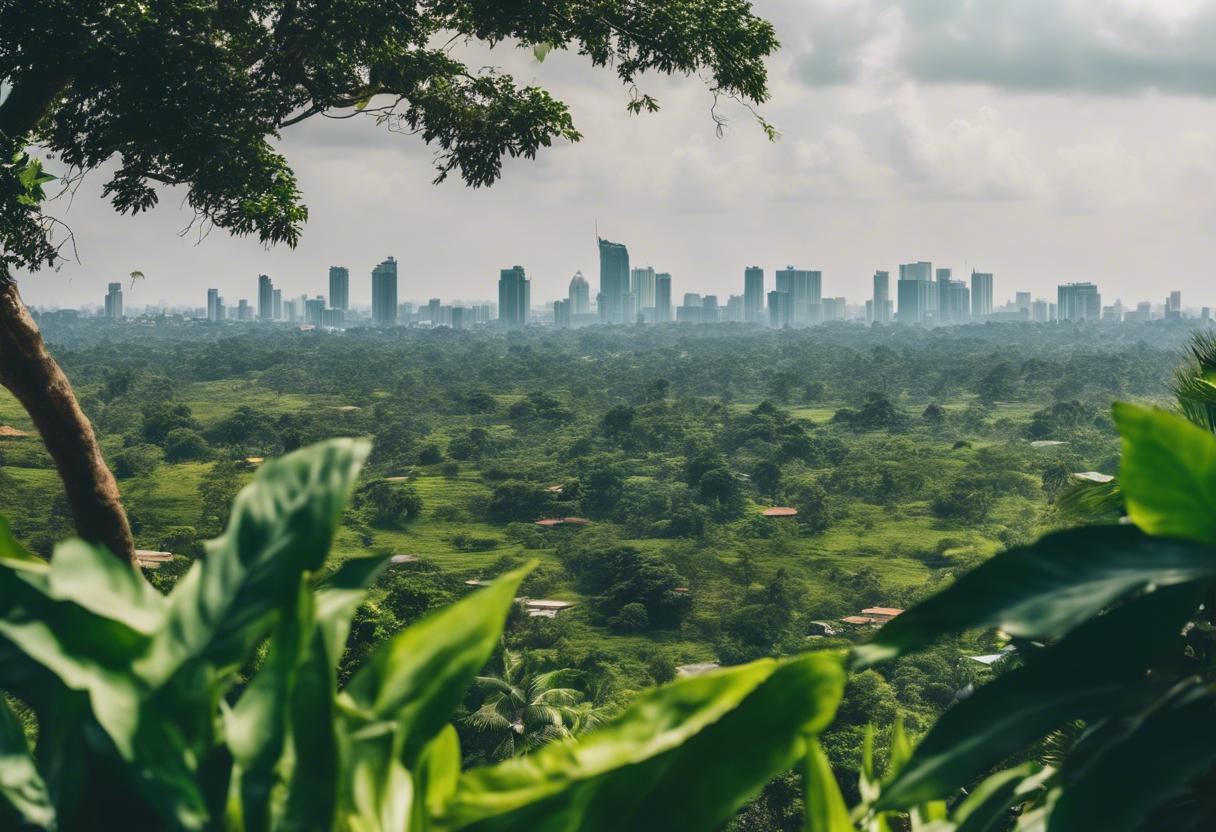Anura Kumara Dissanayake, a progressive leader from Sri Lanka, officially assumed his role as president on Monday, vowing to bring transformation to the island country traditionally dominated by influential political dynasties and currently grappling with its most severe financial crunch in over 70 years. The leftist politician had won the support of a significant portion of the Sri Lankan populace, deeply moved by his commitment to combat corruptions and aid the nation’s delicate economic rejuvenation.
Being sworn in at the president’s official residence, the 55-year-old Mr Dissanayake pledged to defend and promote democratic values, acknowledging the critical times that the nation in the Indian Ocean finds itself in. “Our political sphere needs more integrity, and the population is craving a shift in the political ethos,” he stated. “I am prepared to facilitate that transformation.”
Mr Dissanayake stood as a representative for the National People’s Power (NPP) coalition, encompassing his own Janatha Vimukhti Peremuna (JVP) party, historically known for endorsing Marxist economic approaches focusing on protectionism and public sector engagement. The party has however adopted more moderate stances in recent times.
Enthusiastic supporters brandished posters adorned with his image, some proudly waving the national flag of Sri Lanka and chanting the initials of the newly appointed president, “AKD”, who succeeds the seasoned politician, Ranil Wickremesinghe. Among the challenges ahead for him includes assembling a new cabinet and appealing to the legislative body – where his party only has three out of 225 seats – to approve a budget pursuant to a $2.9 billion (€2.6 billion) relief offer by the IMF.
This election followed the country’s economic collapse in 2022 due to an acute shortage of foreign exchange, which left it unable to afford essential imports such as fuel, medicine, and cooking gas. This crisis sparked protests and led to the disappearance and subsequent resignation of then-president Gotabaya Rajapaksa.
The ceremony was preceded by the resignation of the Prime Minister, Dinesh Gunawardena, to pave the way for the forming of a new premier and cabinet.
Following events triggered by a crisis that led to widespread protests and a debt default, Mr Gunawardena, at the age of 75, assumed the role of prime minister in July 2022 when the previous PM, Mr Rajapaksa, chose to step down and flee. Mr Dissanayake was subsequently announced as the newly elected president, successfully ousting Mr Wickremesinghe late Sunday. Wickremesinghe was parliament’s choice to complete the remainder of Rajapaksa’s term.
Mr Dissanayake, fondly referred to as AKD, secured his victory by gaining a significant lead in the polls, with 1.27 million more votes than the closest competitor, Sajith Premadasa, the main figure of the opposition. Mr Wickremesinghe fell to third place in the race.
However, Mr Dissanayake’s intention to renegotiate the terms of the IMF bailout secured by the country has given investors cause for concern. There are doubts about possible delays in future payouts and also about him potentially seeking a revision of a debt agreement with bondholders, a deal that had just been finalised the previous week.
Beyond Sri Lanka, close neighbouring nations like India, Pakistan, and the Maldives, together with China, Sri Lanka’s biggest bilateral lender, have extended their congratulations to Mr Dissanayake for his electoral win. This information was reported by Reuters. The copyright belongs to Thomson Reuters 2024.

